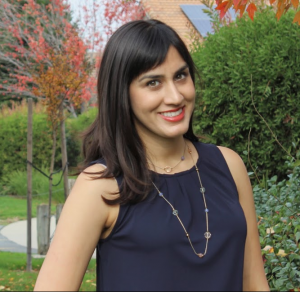Ruby Tumber – Management Analyst, East Bay Regional Park District

Ruby Tumber spends a lot of time at work, even when she’s not in the office. That’s because she works for the East Bay Regional Park District, the country’s largest regional park system. She spends much of her time exploring park trails, shorelines, and open spaces when she’s not actively managing them. Environmentalism, conservation, and the need for more women and minority voices have always been a passion of hers, and she hopes to share her passion with the WEN community as a new member of the Board of Directors.
What is the educational and career path that led to your current career?
On paper, I have a Bachelor of Science in Conservation and Resource Studies from the University of California at Berkeley, as well as a Masters in Public Administration – with an Environmental Policy focus – from San Francisco State University. I also spent some time abroad as an undergrad at the Australia National University, studying International Environmental Policy. Since then, I have worked professionally in both private and public sectors performing environmental review, completing energy projects, and analyzing policy. Off paper, I’d say my career has been shaped by a love of the outdoors, something that was instilled in me during childhood and formative years exploring Northern California’s great outside spaces.
How did you become interested in environmental work?
I cannot recall a time when I was not environmentally-conscious. My parents grew up in India where the need to sustain an overwhelming population often supersedes preservation of natural resources – open spaces are therefore converted to farmland and housing. My dad grew up in a rural part of India surrounded by multiple species of flora and fauna that no longer exist in the abundance that they did before. He found value in our park systems and the ethos of conservation in the US, which he passed on to me.
I grew up with the assumption that my interest in environmentalism wouldn’t translate into a career – I figured that unless I chained myself to a tree in protest and magically profited from it, there wasn’t an occupation for “environmentalist.” It wasn’t until my college years that I realized that the threads of environmentalism, sustainability, and environmental justice are woven into so many disciplines: law, city/regional planning, public health, governance, engineering, architecture, and more. I decided to pursue work in local government because I wanted to focus my efforts at the level it would have the nearest impact to me and my community.
What environmental issues are of most concern to you?
As I mentioned, there are so many facets of environmentalism. There are therefore many issues facing it: climate change, biodiversity loss, overpopulation, depletion of resources, pollution, and more. The list is long, and it’s hard to detach any one issue from the others because they’re are all intertwined, so it’s difficult to pick any one thing that is of the most concern to me. I will say, however, that I think that many of these issues stem from how power and resources are distributed in society and throughout the world. Poor distribution of wealth and resources have led to an ever growing gap between the world’s richest and poorest people. We have seen throughout history that environmental disasters and concerns disproportionately affect the disenfranchised – would this be the case if everyone was effected equally? Probably not. Unfortunately, I think that the accelerated rate at which we are facing environmental problems will eventually reach a precipice of no return. It is therefore of absolute necessity that we engage everyone, break the glass ceilings, and strive to give everyone a voice at the table when it comes to tackling these issues.
If you’d like to get in touch with Ruby, you can connect with her LinkedIn.
